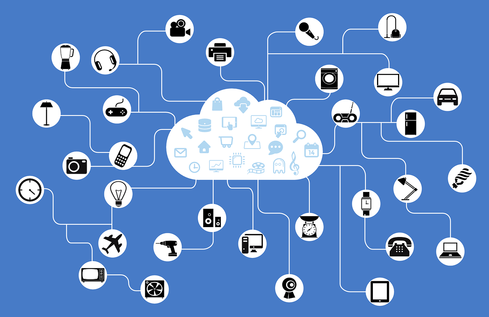Sony Acquires IoT Chipmaker Altair For $212MSony Acquires IoT Chipmaker Altair For $212M
The purchase of Israel-based Altair Semiconductor could help bolster Sony's portfolio of Internet of Things (IoT) solutions for a market that is experiencing rapid growth.


IoT 2016: 13 Hot Trends For Business
IoT 2016: 13 Hot Trends For Business (Click image for larger view and slideshow.)
Tech giant Sony announced the acquisition of Altair Semiconductor, an Israel-based company that owns modem chip technology and related software for Long Term Evolution (LTE), a 4G cellular standard for mobile devices.
The Japanese company will pay $212 million for Altair in a move that could bolster its presence in the Internet of Things (IoT) market, as more devices and appliances come equipped with cellular chipsets and access network services to connect to the Web.
With subsidiaries based in the US, China, and Taiwan, Altair counts approximately 220 employees. It is headed by Oded Melamed, who cofounded the company and previously served as director of cable modem research and development at Texas Instrument.
The company's 4G 1150/6401 offering is an LTE Category-0 chipset featuring downlink speeds of up to 1 Mbps. It's aimed at integration in applications such as wearables, smart meters, lighting, parking, and traffic control, vending machines, and other low-bitrate and battery-operated IoT devices.
The chipset incorporates elements such as an on-chip power management unit, integrated DDR memory, and a low-power MCU subsystem with a security framework for customer-developed applications.
In December Altair announced the opening of a research and development center in Taiwan, which showed the company's intent of establishing a more robust presence in the high-growth Asia market.
Sony expects to complete the Altair acquisition in early February. It aims not only to expand the chipmaker's existing business, but also to move forward with research on and development of new sensing technologies.
The company aims to deliver component devices that feature both sensing and communication capabilities, as well as new LTE solutions that leverage the strengths of these component devices.
By combining and improving its sensing technologies like Global Navigation Satellite System (GNSS) and image sensors with Altair's low power consumption chip technology, Sony plans to develop a new breed of cellular-connected, sensing component devices.
A Nov. 2015 report from IT research firm Gartner forecast that 6.4 billion connected things will be in use worldwide in 2016, up 30% from 2015, and will reach 20.8 billion by 2020, with 5.5 million new things becoming connected every day this year.
[Read Sony Drone Venture Targets IoT.]
In terms of hardware spending, consumer applications will amount to $546 billion in 2016, while the use of connected things in the enterprise will drive $868 billion in 2016.
The report also projected 4 billion connected things will be in use in the consumer sector in 2016, and will reach 13.5 billion in 2020.
The acquisition of Altair follows Sony's October purchase of range image sensor technology specialist Softkinetic Systems, which is based in Belgium and has offices in Sunnyvale, Calif.
Softkinetic, which possesses time-of-flight (ToF) range image sensor technology, as well as related systems and software, could help Sony develop the next generation of range image sensors and solutions, not only in the field of imaging, but for broader sensing-related applications as well.
About the Author
You May Also Like






